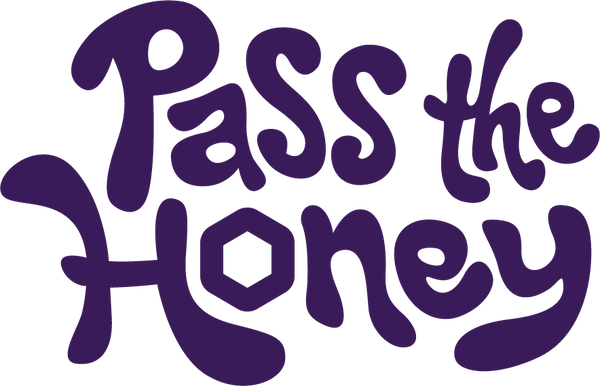For some brands and ingredients, identifying the location of their sourcing is simplified based on climate and production constraints. For example, there are only so many agricultural regions that produce chocolate. For Pass the Honey, this question is not so simple, because honey production is nearly ubiquitous across the globe.
There are two constraints for Pass the Honey that are crucial to identifying sourcing for a healthy supply system. One is the need for chemical free forage areas to avoid the risks of bioaccumulation of agrochemicals and other pollutants in the wax of honeycomb, and the other is abundant forage throughout the growing season in order to produce full and efficiently harvest comb sections.

These constraints have led Pass the Honey to set non-negotiable steps in our process of bringing honeycomb to the consumer. First, Pass the Honey only sources from beekeepers who keep their honeybees in landscapes free from contaminants. Our beekeeper suppliers report the specific locations of honeybee hives and surrounding landscapes which can be audited geospatially or on the ground. Second, Pass the Honey third-party tests all of our honey products to ensure they are safe and healthy for the consumer; testing specifically for antibiotics, pesticides, herbicides, fungicides, and other industrial contaminants.
In addition to ensuring that all forage areas are free from apitoxic chemicals, it is important to identify landscapes most suitable for honeycomb production. Three important considerations include stable climates without seasonal weather extremes, diverse and flower-rich landscapes, and reliable rainfall.
For continual honey output, honeybees benefit from year-round forage opportunities, meaning that the ideal landscape has to be nectar bearing plants, flowering throughout the year. This also lowers the risk of honeybees experiencing starvation, allowing their immune system to stay strong and fight off any environmental stressors they may come in contact with such as pests and diseases. Year-round foraging is a function of climate without long periods of frost, minimal weather extremes, and high biodiversity. Temperate, Mediterranean, and tropical climates are some of the best suited for this.
Currently, Pass the Honey is working with beekeepers and apiary productions amongst wildflowers in mountainous regions situated at the crossroads of the Middle East and eastern Mediterranean. Wildflower Honeycomb often produces a rather distinct flavor as the bees in these areas extract their honeycomb from the flowering trees.

